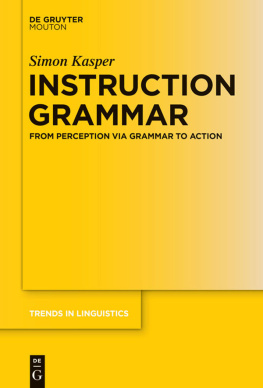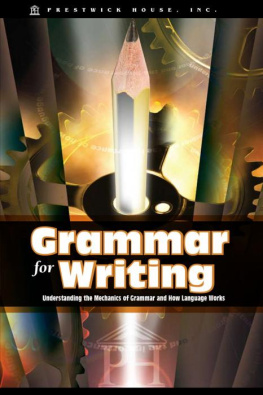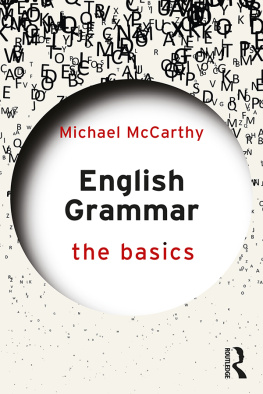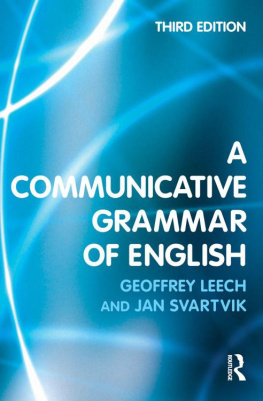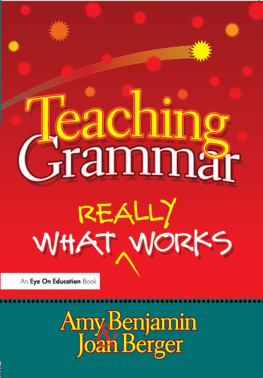Contents
Simon Kasper
Instruction Grammar

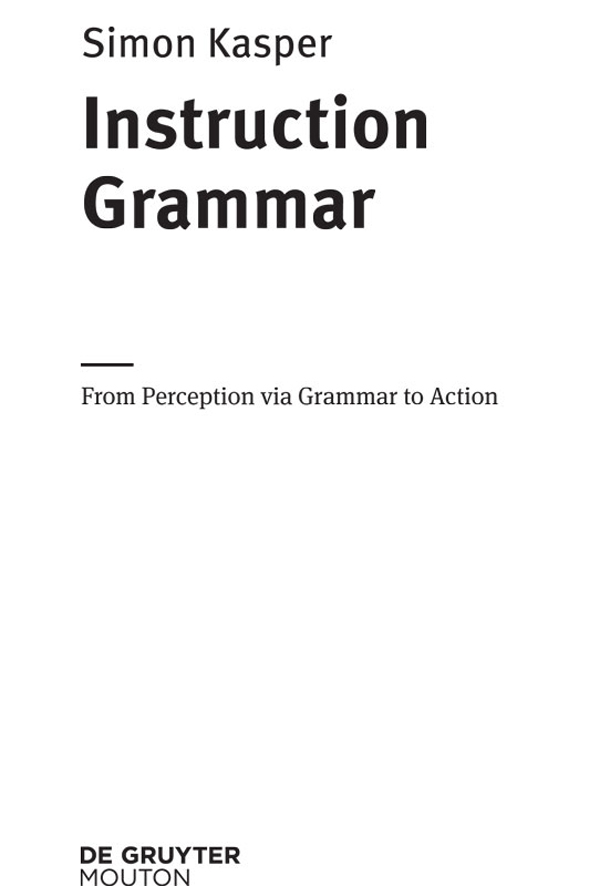
ISBN 978-3-11-043897-0
e-ISBN (PDF) 978-3-11-043015-8
e-ISBN (EPUB) 978-3-11-043019-6
ISSN 1861-4302
Library of Congress Cataloging-in-Publication Data
A CIP catalog record for this book has been applied for at the Library of Congress.
Bibliographic information published by the Deutsche Nationalbibliothek
The Deutsche Nationalbibliothek lists this publication in the Deutsche Nationalbibliografie; detailed bibliographic data are available on the Internet at http://dnb.dnb.de .
2015 Walter de Gruyter GmbH, Berlin/Boston
www.degruyter.com
(know thyself)
inscription at the Apollonian temple in Delphi
(man is the measure of all things)
Protagoras, cited by Plato (Theaitetos 152a)
Every thing is what it is, and not another thing
Joseph Butler
Acknowledgments
My dissertation was accepted by the Institut fr Germanistische Sprachwissenschaft at the Philipps-Universitt Marburg in December, 2012. The present work is a revised version of that dissertation. In comparison to the original, it has gone through a pragmatic turn since then, because I went through a pragmatic turn and didnt want my linguistic theory to be left behind. I must admit that now, at the time of revision, I cannot estimate where my change of mind will ultimately lead me in linguistic theory, and I am not sure how far my linguistic thinking is behind my philosophical thinking. Not at least because of this, the present work is an invitation to join the discussion which I hope to start.
For accomplishing both the original dissertation and its revision, I am deeply indebted to many people for different reasons: to Hanni for giving me the love, strength, and confidence I needed to accomplish this; to my parents Marlis and Karl-Heinz for their faith and for letting me do it differently; to my brother Robert and my sister Christiane for being Kaspers, too, and to their families for their patience and for going through all the family stuff with us; to Volker for his inspiration; to my grandparents for reminding me of my origins; beyond that, to Heinrich Kasper for his contagious thirst for knowledge; to my friends Thomas, Lars, Jan, and Sven for keeping our friendships up in times of writing, caring, working, and flying; to Christoph Purschke for his wit, clues, hints, advices, his time for many inspiring talks, and for reading a very early and late manuscript of this book; to him again and to Alex Werth for raising my spirits by trying to beat me in tennis (in vain, of course); to my friends, buddies and (ex-)colleagues Philipp Spang, Matthias Katerbow, Alfred Lameli, Alex Drge, Oli Schallert, Victoria Schaub, Josephine Rocholl and Hanni Schnell (again) for making the scientific circus much funnier (and professional, of course); to all the people at the Forschungszentrum Deutscher Sprachatlas and in the LOEWE and SyHD projects for the enjoyable and prosperous collaboration; to Sara Hayden and Mark Pennay (I will remember you!) for their active support; to Volker Gast at TiLSM; to Birgit Sievert, Julie Miess and Nancy Christ at de Gruyter.
I thank all my academic teachers whether I have talked to them, heard them or read them. They will find themselves cited in this book. I hold them all in great esteem even though my own ideas possibly deviate from theirs today in one or another respect, especially in this revised work! I doubt I could do justice to all of them. If, due to my own ignorance, I did not, I look forward to discussing the respective matters with them. With regard to my teachers, I am especially grateful to Jrgen Erich Schmidt who has placed great trust in me by giving me the opportunity to complete my dissertation project. I am indebted to Ina Bornkessel-Schlesewksy for supervising me with great patience and a leap of faith, for being open to new ideas, and for her critical mind, and to Jurg Fleischer who is a great boss, advisor, and linguist.
Contents
List of Figures
| Semiotic triangle |
| Modular view of the syntax-semantics interface |
| Modular view of the syntax-semantics linking by means of thematic roles |
| Individual level of the model |
| Data and individual levels of the model (revised) |
| Data, individual, and species/community levels of the model (final version) |
| Multidisciplinarity and converging evidence |
| Model underlying the research programme of Chomskyan Linguistics |
| Types of circumstances and their characteristics |
| Aspects of the relationship between action schemas and purposes |
| Action chain |
| Thing-circumstance taxonomy |

